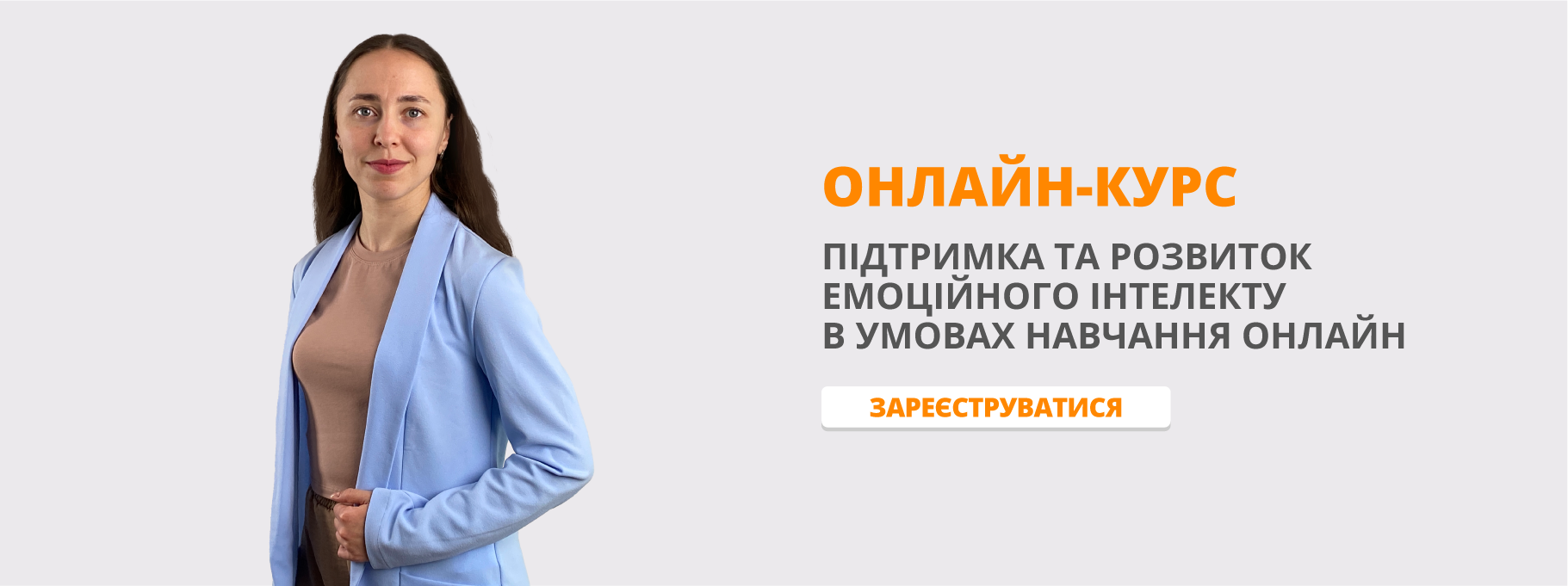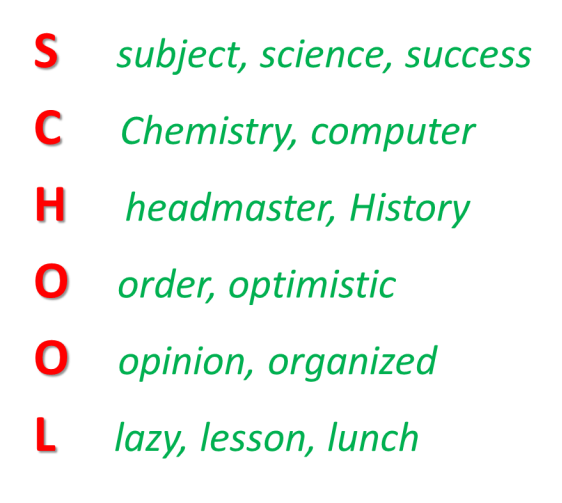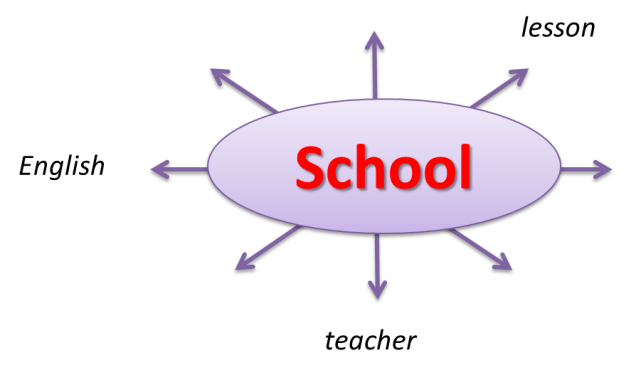Інтерактивні методи роботи на уроках англ. мови в 5 кл. за новою програмою. Матеріали до уроків.
Інтерактивні методи роботи на уроках англ. мови у 5 кл. за новою програмою за підр. А.Несвіт допоможуть вчителю при написанні плану-конспекту урока. Різноманітна кількість інтерактивних вправ зроблять ваш урок цікавим.
“Асоціативний кущ”
Topic ‘’School life’’
Topic ‘’Season’’
-
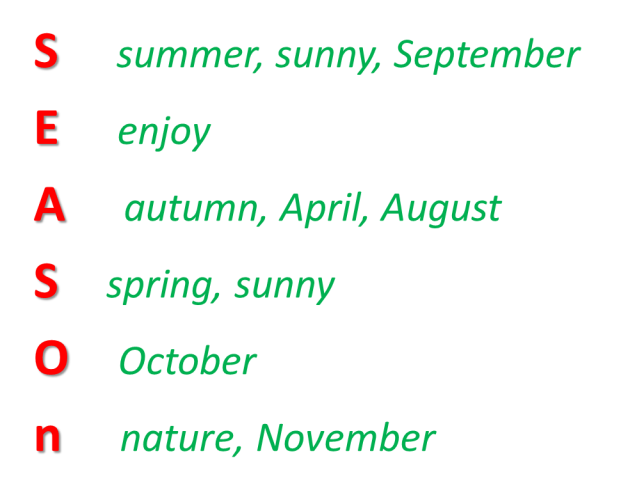
-
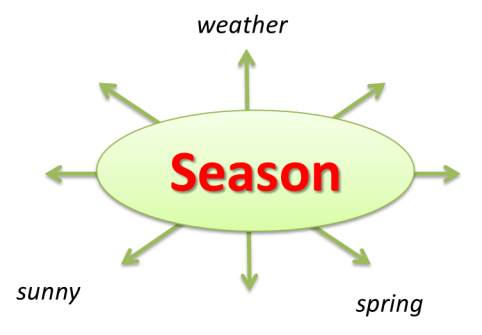
- What season does the famous composer show in his music (Учні слухають музику П. Чайковського “Пори року” і називають пору року, з якою асоціюється ця музика)
“Акваріум”
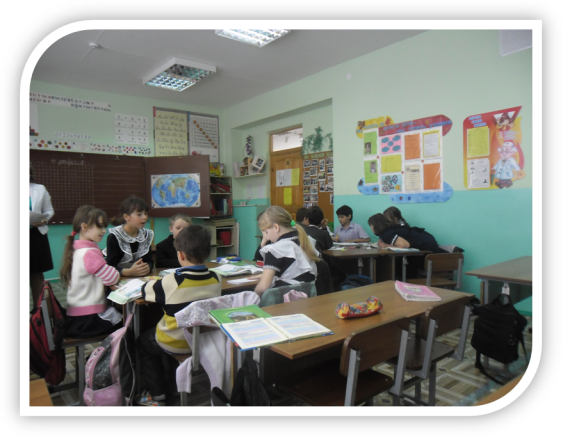
(4 учнів сидять за окремим столом і по черзі розповідають про свою сім’ю, своє місто, про Україну). Решта учнів, слухаючи, задають їм питання і приймають участь у дискусії)
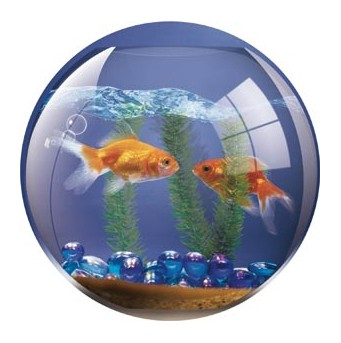
Group – work
Game ‘’Gues what season it is’’ (з елементами пантоміми)
(Учні використовують речі для пантоміми: плащ, парасолька, капелюшок, сонцезахисні окуляри, кошик з квітами та ін.) Команди отримують картки з описом пори року. Представники команд повинні представити пори року. Інші повинні вгадати що це.
***
It’s warm. The sky is blue. The birds build their nests. The snow melts.
The people go to the forest and pick snow-drops.
(Spring)
***
It’s hot and sunny. The days are long. The people go to the seaside.
They swim in the sea or in the river.
(Summer)
***
It’s very cold. It’s frosty. It snows.
The children skate, ski and play snowballs.
(Winter)
***
It’s rainy. The sky is grey and cloudy. The trees are green, yellow, red and brown.
The people wear raincoats and take umbrellas.
(Autumn)
Round table discussion
Think of 3 things
- what people wear (in summer, in winter)
- what children wear (at school, at home, to the picnic)
Write into 2 columns:
- healthy and unhealthe food
- countable and uncountable nouns (‘’Food’’)
Think of 3 (rivers, cities, mountains) in Ukraine
Divide the words into 2 groups
- a pencil
- a mobile phone
- a toy-car
- a sweet
- a marker
- a doll
- a ruler
- a book
- a ball
- a pet
I use at the lessons:
I don’t use at the lesoons:
Divide the words into 2 columns:
- to bake a pudding
- to buy flowers
- to sing carols
- to make presents with Dad
- to open presents in the morning
- to draw a card
Christmas
Mothers Day
Pair – work
Work in pairs. Act out short dialogues. Talk about your classmates.
A: Bob is a very hard-working pupil.
B: Yes, he is. He is always works hard at home.
Act out the situation
You’ve met a former classmate in the park. Ask each other questions about your friends.
Work in pairs
What do you think is important for a good quality life?
(a lot of friends, a friendly family, an interesting hobby, going in for sports, long school holidays, time to watch TV, more lessons…)
‘’Lexical Practice’’
Topic ‘’Nature. Seasons. Weather’’
- find the weather words
Sunnydgwindytkrainyvfstormydcloudybnhotgwarmvcoldcfoggynsnowyjweather
- match the weather to the season
|
spring |
it’s rainy and wet, trees and flowers start to grow |
|
summer |
it’s hot and sunny, people go on holiday |
|
autumn |
it’s cool and foggy , trees lose their leaves |
|
winter |
it’s very cold and it snows, Christmas is in this season |
- One Odd Out
|
January |
February |
South |
May |
|
sun |
cloud |
rain |
to wear |
|
to blow |
to fall |
vegetables |
to shine |
|
season |
warm |
cool |
cold |
|
September |
October |
November |
winter |
|
rain |
snow |
wind |
night |
Topic ‘’School Life’’
Match the world – combination
Rules for Pupils
 Don’t get up
Don’t get up
Be
Don’t make much noise
Open the window
Never forget
Be always ready
Don’t forget to water
in the corridor
air the room
late
your duties
for your lesson
flowers
polite
 Complete the mind – map:
Complete the mind – map:
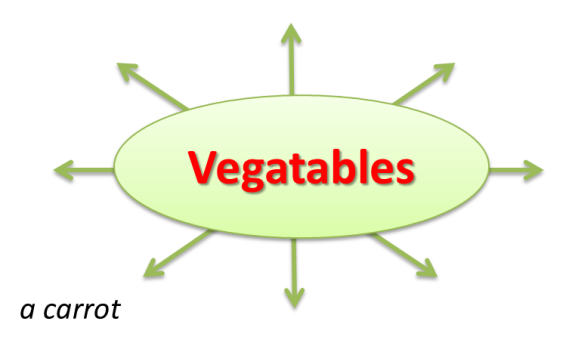
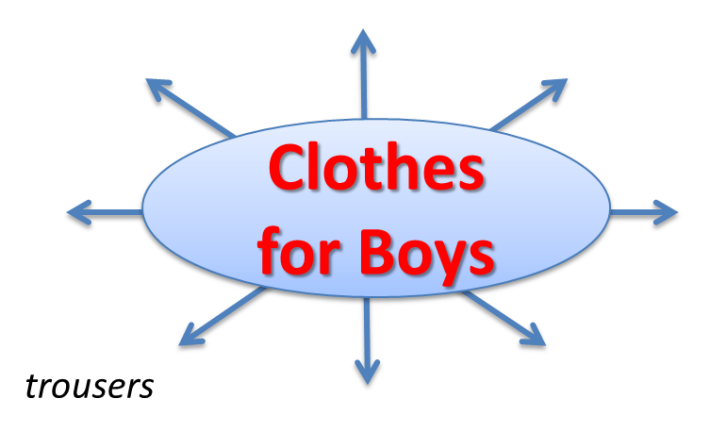
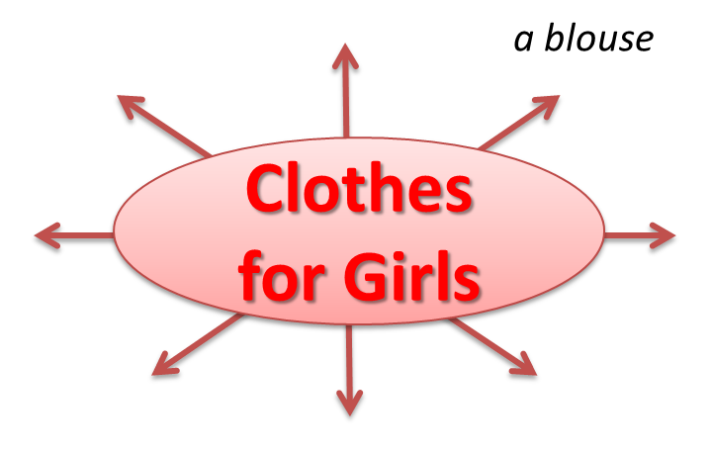
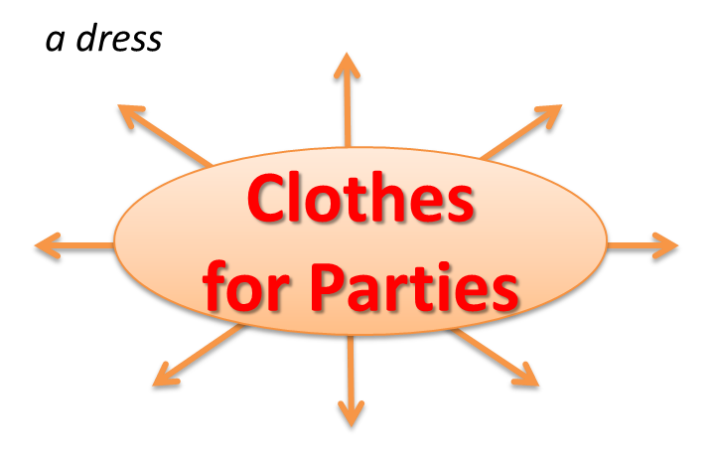
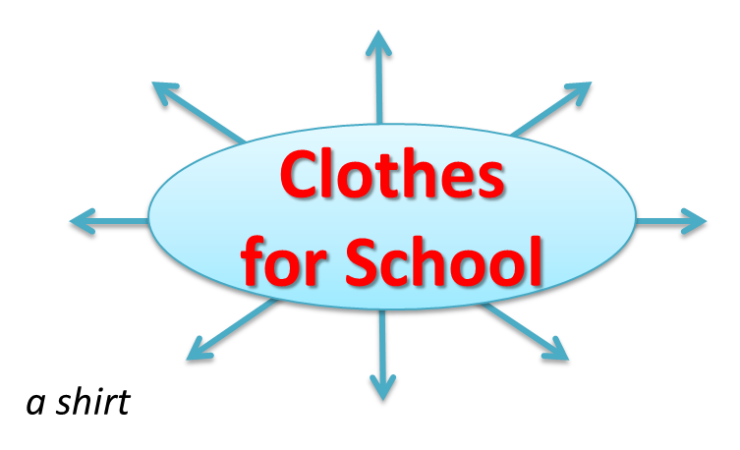
‘’Listening’’
Me, My Family and Friends
Text 1. Part-Time Families
Level A. Pre-Listening Exercises
Grown-up – дорослий;
Call – називати, давати ім’я;
A number of – багато;
Stay – залишатися, жити;
Own – володіти, мати;
Spend – проводити, витрачати час;
Look after – доглядати, піклуватися;
Celebrate – святкувати;
Gather – збирати, збиратися.
- Answer the following questions.
1) Do you have a large family?
2) Whom do you live with?
3) Do you live in the house or in the flat all together?
- Match the pictures with the titles. What do you think the story is going to be about?
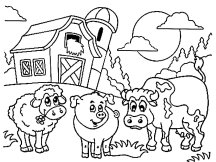
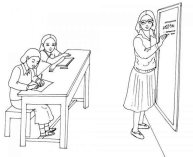
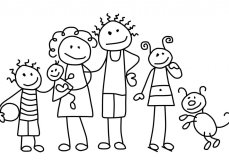
- Children at school
- A large family
- Animals on the farm
- Create a mind map – write down the words you think or when you hear the word ‘’family’’.
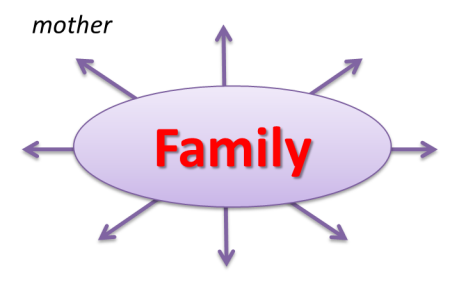
4.Together with you partner find a few words that fall into each category and write them down.
|
Categories |
Words |
|
Family activities |
|
|
Famile members |
|
|
Times that families spend together |
weekend, |
Me, My Family and Friends
Text 1. Part-Time Families
Level B. While-Listening Exercises
- Listen to the text ‘’Part Time Families’’. How many families live on big farms in Israel? What do they do there?
________________________________________________
- Circle the words from the text.
- Farm/firm
- Wark/walk
- Badly-cared/well-cared
- Sleep/steep
- Good night/goodbye
- Nourses/purses
- Tick (*) the pharses from the text.
|
1) |
Stay in the house |
* |
|
Play in the house |
|
|
|
2) |
Eat lunch |
|
|
Eat breakfast |
|
|
|
3) |
Look after children |
|
|
Look for children |
|
|
|
4) |
Spend the day together |
|
|
Send the children to play together |
|
Listen to the text again and fill in the gaps using the words from the box.

Tasty
Look after
Bed
Together
Dining room
Parents
Stay
Israel
Saturdays
Day
Families
Spend
In Israel a bif farm is called a kibbutz. On a kibbutz, parents and children do not live together (1). Parents stay in a house for grown-ups. Children _______ (2) in a house for children. And babies stay in a house for babies!
There are a number of such farms in _______ (3), and many families live on each one. Each kibbutz is owned by all the _______ (4) that line on it.
Every ______ (5) the children for a kibbutz go to school and the gron-ups work. Children and teacher eat lunch at school. Grown-ups eat lunch in a big ______ (6). Then they spend most of the evening together.
But when it’ time to go to ______ (7), children go back to the children’s house to sleep. Their parents usually go with them, to say good night. Then ______ (8) go back to the grown-ups’ house to sleep.
Children on a kibbutz are well-cared for. Women ______ (9) the children in the children’s house. Nurses take care of the babies in the babies’ hose.
On ______ (10), parents usually go to the children’ house to take their children. If theey have a baby, they take it from the babies’ house. Then the whole family _______ (11) the day together.
When they have a holiday or a birthday they celebrate it together in a family. There area a lot of ______ (12) things on the holiday table. The famil gathers for dinner. They have a good time together.
Me, My Family and Friends
Text 1. Part-Time Families
Level B. Post-Listening Exercises
- Mark the sentences true (T) or false (F).
|
|
T/F |
|
|
1. |
On a kibbutz parents and their children don’t live in one house. |
T |
|
2. |
Children and grown-ups spend all day together. |
|
|
3. |
A Kibbutz is a family business. |
|
|
5. |
In the evenings before going to bed children spend their time in the children’s house. |
|
|
5. |
Kids on a kibbutz play on their own. |
|
- Choose and circle the correct answer.
- A kibbuts is …
- A family
- A house
- A farm
- Grown-ups have lunch …
- In school canteen
- In a large room
- Ia a farm cafe
- On a kibbutz children sleep …
- At home
- With teacher at school
- In the children’s house
- … look after the babies in the babies’ hose.
- Mothers
- Grandmothers
- Nurses
- Parents usually take their children from the children’s house …
- On Friday
- On Saturdays
- On Sundays
- Find mistakes in the sentences and correct them.
- A kibbutz is a small farm.
A kibbutz is a ig farm.
- One of the families owns a kibbutz.
- Grown-ups go to school on the morning.
- Children sleep in the house for grown-ups.
- The parents are usually at work when the children go to sleep.
- Answer the following questions.
- What is a kibbutz?
It’s a big farm.
- Who lives on a kibbutz?
- Where do the babies stay during the day?
- Who looks after the children on a kibbutz?
- When do the families spend time together?
Асоціативний кросворд
Інтерактивний прийом, який доцільно використовувати в якості розминки на початку уроку, командного змагання або перевірочної роботи під час узагальнення вивченого матеріалу.
Прийом «Асоціативний кросворд» дозволяє актуалізувати вже існуючі
знання з метою використання їх у конкретній ситуації.
На дошці, аркуші паперу чи на іншій поверхні (в залежності від обраної форми роботи) вчитель записує опорне слово (буква під буквою) з теми вивчення.
Задача учнів – запропонувати декілька понять у кількості, що відповідає чисельності букв в опорному слові. Всі дібрані учнями терміни та поняття мають бути підібрані таким чином, щоб принаймні одна з літер кожного асоціативного слова співпадала з головним.
Основна умова: всі дібрані слова мають бути обов'язково пов'язані з головним. Таким чином опорне слово із підібраними поняттями у закінченому вигляді буде нагадувати кросворд.
Прийом «Асоціативний кросворд» доречно використовувати, вивчаючи яку завгодно тему. Наприклад, в межі вивчення теми «My Family» можна запропонувати таке завдання:
Приклад завдання: доберіть асоціативний ряд понять до слова «Family» та поясніть їх зв'язок з опорним словом.
Приклад відповіді:
F a t h e r
A u n t
M o t h e r
s I s t e r
s m a L L
b a b Y
FATHER – the main member of the family or my grandparents’ son.
AUNT – my mother’s or father’s sister.
MOTHER – the dearest people in the family or my grandparents’ daughter.
SISTER – my parents’ daughter.
SMALL – not big.
BABY – a child from 1 day to 1 year.
Варто зазначати, що при залучені такого прийому виробляються навички асоціативного та системного мислення.
-
гарний матеріал


про публікацію авторської розробки
Додати розробку
